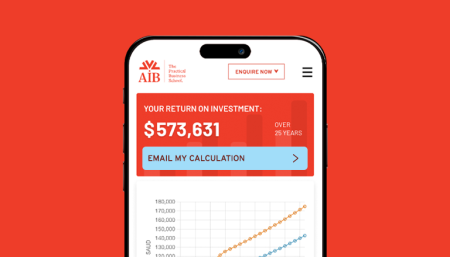How to motivate high performing employees

As a manager, you’ve likely been inundated with advice on how to hire high performing staff, motivate your employees to achieve more and counsel your less productive workers to bring them up to scratch.
Having a team of high performers is the dream for many managers, but even this ideal scenario can bring its own unique challenges. Surprisingly, motivating high performers and keeping their motivation aligned to the team’s goals can be among them. Here are five things leaders should know about what motivates star employees.
Motivating high performers
High performing employees are often very good at setting their own goals and identifying their intrinsic motivators to keep themselves on track. This has obvious benefits for their managers, but with less control of how to motivate staff can come less control over what the employees are motivated to do.
Understanding how motivation does work for these employees, therefore, can give their managers much more influence to ensure their motivations and efforts are aimed in the right directions.
High performers know they’re valuable
A high performing employee is a valuable asset to any organisation – and unfortunately for you, they know that as well as you do!
Your high performer is likely to have a plan for their career and an eye for the next step. As a manager, it’s important that you show them a path for that ambition within your company, otherwise they are likely to leave when the right opportunity presents itself. Taking a genuine interest in an employee’s professional growth sends a powerful, positive message that usually is greatly appreciated by those on the receiving end.
Learn more: Why good employees quit
Communicate with them openly and regularly to discuss their career ambitions, and make sure that you link their current projects back to those goals. If your star is developing professionally and can see how the work they’re doing now feeds into their future, they’re more likely to stay and work with you in the longer term.
They may be motivated by different things
The challenge of inspiring or motivating high performing employees is knowing how to influence them to work smarter and to ensure they are satisfied with their job. For example, the high performer may want to work remotely. They’ve proven themselves to be productive members of the team which means they want more flexibility. They may want to dictate their hours so long as they keep producing the results.
Often the best strategy will be to ask them what will motivate them and then link that to their work.
Keep in mind, however, that high performers are usually still one part of a team. You have a lot of factors to consider, including how this will affect other members of the team. It’s almost guaranteed more will follow suit with the same requests. You have to weigh up how valuable it is to keep this high performer happy with how unhappy it may make others who don’t get the perk.
Provide challenges to stretch them and stave off boredom
Some employees will be happy to clock in and out every day, work productively and deliver on what they are told to. These employees are no doubt valuable to the team, but they differ from high performers.
High performers want to drive their own initiatives, manage their own time, and deliver above expectations. These employees must be given the opportunities to do so, or they will likely become bored and disengaged. Offer them opportunities to work on the most valuable projects that contribute to the overall success of the business. Ask for their opinion when big issues arise, but don’t neglect middle performers in doing so – they may be high performers in waiting!
They may not respond to traditional performance incentives
Performance incentives are often used by organisations to improve performance and encourage desired behaviours. But if you have an employee who consistently exceeds performance targets, it becomes difficult to continually reward that achievement.
You may become accustomed to the employee’s high performance and cease to see it as worthy of recognition, but they certainly won’t. Or perhaps your employee finds it easy to meet and achieve targets without expending unusual effort – in that case, is a bonus or other incentive even appropriate? And if you do reward the high performer every time they bust through a target, how will other staff react?
These difficulties can result in the deterioration of employee engagement – whether that’s the high performer in question, or a peer who believes they are seeing favouritism in action. Therefore, leaders are faced with the challenge of being able to adequately recognise and reward top performers, while motivating all employees to perform.
In situations like this it can be useful to avoid adopting a blanket approach to incentivising performance. Gain an understanding of what motivates each employee to deliver outstanding results and build individual (or team) incentives based on that.
They can be resistant to feedback
A star performer who knows that they’re more valuable or productive than their colleagues may find it hard to hear negative feedback, even if it’s constructive. If their work is slipping in quality, they’re missing deadlines or their attitude has become unfavourable, approach the topic sensitively.
Frame the issue as a temporary one, emphasise that you’re coming from a place of concern because it’s out of character, and see if you can get to the bottom of things. Go into the encounter assuming the best, not the worst.
What do you think?
Managing star performers is not always easy. The biggest advantage and disadvantage, simultaneously, of many high performing employees is their independence. While this is often a blessing, it does mean that motivating high performers requires a different set of strategies to other employees.
What strategies have proven successful for you when managing high performers, or a team of employees who produce varying results?
This article was written by Tanya Ashworth-Keppel on behalf of the Australian Institute of Business. All opinions are that of the writer and do not necessarily reflect the opinion of AIB. The following sources were used to compile this article: Forbes; Harvard Business Review; Inc. and LinkedIn




